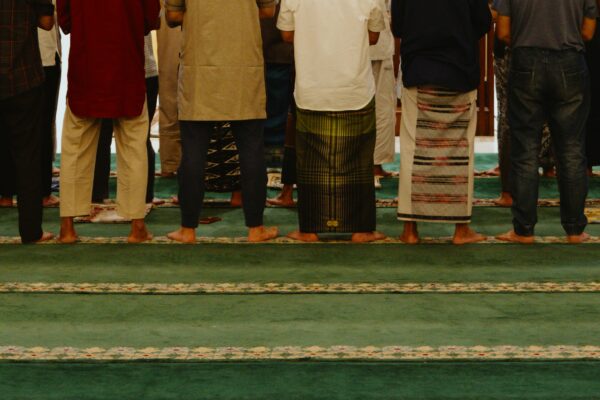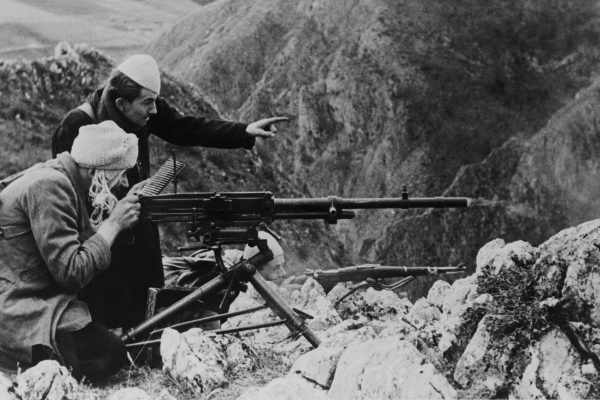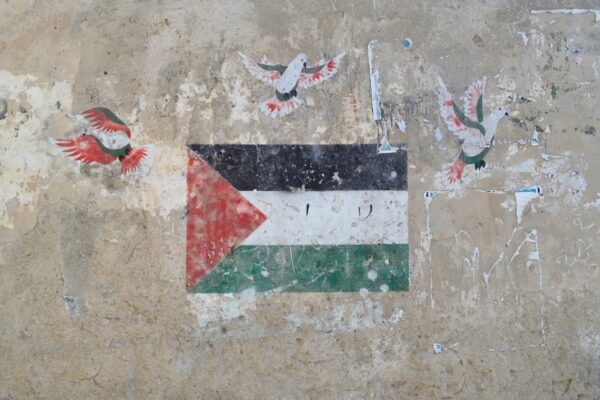Unity cannot occur if Muslims remain isolated and distant from each other in separate groupings, or if little or no effort is put into changing this situation.
Unity cannot occur if Muslims remain isolated and distant from each other in separate groupings, or if little or no effort is put into changing this situation.
As our society today remains plagued with numerous issues, conflicts, and corruption, it remains more important than ever to remember our Islamic duty in bettering our world.
By understanding and learning about the solutions that Islam holds for us in our world today, we can also begin to create a better future for our Muslim ummah.
1. Unity through connectivity
Unity cannot occur if Muslims remain isolated and distant from each other in separate groupings, or if little or no effort is put into changing this situation. Practical ways and means must be found in which Muslims across countries can become more connected to each other.
This applies locally as well as internationally and is the overarching principle that cuts across all others. This is also about getting to know one another and appreciate each other’s history, culture, and good values.
2. Muslims must become allies of each other as required by the Qur’an
It is not enough simply to do this in word; this must be bound in deed, in writing, or in treatises which then become binding particularly among Muslim majority states, but also Muslim communities across borders.
We see how the political order of the Prophet Muhammad صلى الله عليه وسلم came about because of such a treaty. The Qur’an also places great emphasis on putting things in writing and honouring such agreements.
3. Economy of brotherhood
The overarching aim should be to be able to produce everything the Muslim world needs within Muslim majority countries. Restrictions on inter-country trade and investments should be limited to those necessary, with more freedom to trade.
Muslim countries need to consider how they can further the goals of self-sufficiency and development, rather than just focusing mainly on providing food aid and emergency needs.
4. Self-defense and protection are no offense
Security and protection of life, liberty, and property matter to Muslims as it does to all humankind. The ability of nations and individuals in communities to acquire the skills and means to protect themselves, in case of a threat, is a necessity in our current conditions.
Muslim majority countries need to come together in military unions and act as mediators to solve the problems of other Muslim states. Muslims must build arms capacity for themselves and sell military equipment to each other and engage in science and research around defense and security.
5. Intrafaith more than inter-faith
There is currently interest by Muslims at both a global and local level to get involved in interfaith dialogue. This is mainly pushed by Western countries.
Yet despite deep-rooted sectarianism, there is no push to develop intra-faith understanding. Muslims need to engage in intra-faith dialogue within themselves and build understanding across cultural and racial divides, within the community, more than participating in inter-faith initiatives.
6. Common language binds separate states and people together
This does not mean abandoning indigenous languages or not prioritizing them. Arabic seems the obvious choice to become the common language for Muslims, and in Arab-speaking countries, efforts should be made to learn other languages spoken by Muslims. Muslims have been focused on learning European languages more than that of other Muslim nations, primarily for educational and economical reasons.
Priority must also be given to literacy projects and schooling to end illiteracy in the Muslim majority world. The importance of the Arabic language was highlighted in a Rand Report “The Muslim world after 911” published in 2004: “The dominant language of the Middle East is Arabic. Arabic unifies disparate populations and helps them transcend national borders. It is also the language of the Qur’an. Arabic is thus more than just a mode of conversational, political, and mercantile discourse like English or French. It contains deeply historic and religious symbolism…” (pg 707).
7. Knowledge and learning has no boundaries
Muslims should be able to critically interrogate, attain, and convey knowledge across the world. It is imperative that Muslims gain knowledge across boundaries and not restrict themselves to the West.
Learning and the availability of knowledge today is also global, and not confined to physical institutions. Much learning can be done online globally as well. First-rate universities need to be developed throughout the Muslim world, which will attract Muslims from other countries.
Currently Muslims primarily go to universities in the Muslim world to learn theology or obtain Alim qualifications. There is not a single university in the Muslim world in the top 100 global universities, a damming indictment of a civilization once at the heart of knowledge and education in the world. It was a Muslim, Ibn Khaldun, who is accredited with founding social sciences. Muslim-led universities need to become leaders in offering social science courses, not just science and theology.
8. Beyond borders
Thinking about Muslim issues should transcend borders. Investing in critical research in all fields of thinking, analysis, and planning are necessary for development.
Muslims must become specialists on Muslim majority countries, peoples, and their issues, as well as Muslim minority communities. Muslims in the West are ideally placed to develop this area of work.
9. Media and culture matter
Global media can play an important role in conveying the history and culture of other people and understanding issues, as well as imparting values.
We have seen this with the popular Turkish drama Ertugrul which has been shown and appreciated in so many Muslim majority countries, as well as in the West. It has demonstrated a global appetite from Muslims to learn about Islamic history, culture, and polity.
10. Understanding nationalism and racism
Muslims in the West are uniquely placed to be able to analyze and understand the nature of racism and extreme forms of nationalism and how to practically develop policies to undermine and manage them.
They are also at the epi-center of anti-Muslim and anti-Islam narrative and propaganda (Islamophobia). Anti-racist and anti-Islam hate education and awareness is something that needs to be taught in all parts of the Muslim world, including schools.
11. The rights of the ruled
There is a lot of Muslim discourse on rulers and rulership among Muslims and Muslim majority countries. This tends to focus on the rights and powers of the rulers, as it has done historically.
Toward the 19th century, a discourse started in the Muslim world and among the Ottoman state known as Constitutionalism. Whilst this was in part influenced by developments in Europe, there was also a genuine internal desire to curb the luxurious and wasteful lifestyle of rulers, and injustices against people.
This led to the demand to replace their absolute powers with more accountable forms of government which would guarantee rights to citizens; not just to be able to the discretion of the ruler or an appointed religious Qazi (the demand was that rights should be written down in law and guaranteed). This debate and process need to continue based on an Islamic foundation, but with a contemporary understanding of the strengths and weaknesses of modern governance and accountability and methods of holding power to account.
12. Justice is central to Islam
There needs to be a practical focus as to how to achieve justice in Muslim majority states, and in the fair treatment of individuals and communities in society.
A society where the privileged and rich have more right to justice, and to avoid criminal sanctions than the weak and poor can never be considered a developed or just one, let alone an Islamic one. Projects based on identifying injustices and establishing principles of justice, such as due process, rule of law, fair trial, anti-corruption, need to be developed and widely understood and become part of the Muslim public consciousness and culture.
This also needs to be coupled with a movement against those individuals and groups who consider mob and vigilante justice to be a correct Islamic method.





